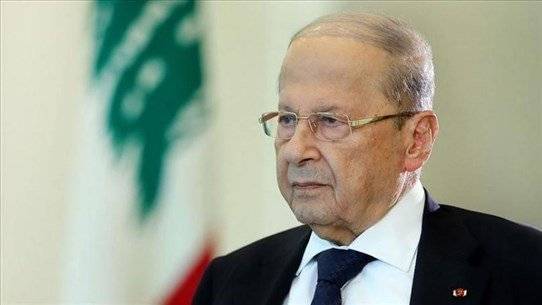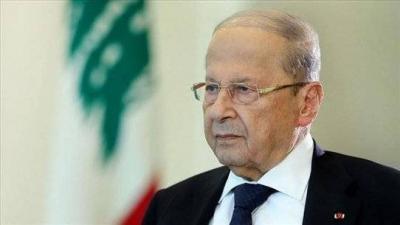As attention turns to the new parliament for the election of its president, a significant bombshell was dropped by MP Jamil al-Sayyid from Baabda, stating that the caretaker government cannot inherit the powers of the presidency in the event of a presidential vacuum. This message can be interpreted in two ways: either it opens the door for bargaining or it prepares for the extension of the president's term if a government is not formed by the end of his term. This follows a statement by the head of the "Free Patriotic Movement," Gebran Bassil, who warned of an intention to not form a government and bypass the constitution, considering the current caretaker government to have full powers. He cautioned that this could undermine the Taif Agreement.
So, who is the intended target and who stands to benefit from not forming a new government? It is certain that there is a hidden agenda somewhere that raises questions about what is being cooked behind the scenes regarding the upcoming government and presidency. Since the election of a new parliament rendered the government automatically resigned under the constitution, some expressed concerns that the caretaker government might continue until the end of the term if an agreement fails to appoint a president and form a new government.
The stance expressed by MP al-Sayyid from Baabda, following his visit with President Michel Aoun, was noteworthy. He stated, "It is not permissible to relinquish the presidential powers to a caretaker government at the end of his term, as the presidential powers are not among the subjects covered by the caretaker functions, and it is, in my opinion, not possible for His Excellency the President to leave and hand over his powers to a caretaker government that does not enjoy constitutional powers itself, and therefore cannot inherit the constitutional powers of His Excellency the President."
Raising this issue from the Baabda Palace, even as a "personal opinion," did not eliminate speculations about it, especially as it suggested a signal for extending Aoun’s term just as the expiration of President Michel Aoun's term approaches. The assertion, based on the constitution, about the impossibility of a caretaker government assuming the powers of the presidency upon the end of the term undeniably points to existing obstacles in forming a government due to the lack of possibility for consensus amidst the new divisions in the parliament, which threaten mutual disruptions. This means: if you obstruct the formation of a government, we will accordingly obstruct the transfer of presidential powers to a caretaker government. At that point, the new parliament would be seen as futile since it would be powerless to hold a caretaker government accountable with presidential powers.
Continuing a caretaker government until the end of the term, if it occurs, would be an unprecedented violation in Lebanon's history, especially since the post-Taif period where government formation occurs after mandatory parliamentary consultations conducted by the president who subsequently assigns a prime minister to form the government. No term has ever ended with a caretaker government, as governments remained legitimate, such as Fouad Siniora's government after Emil Lahoud's presidency, and Tamam Salam's government later following Michel Sleiman's presidency, each under governments with full powers and a functioning parliament capable of holding them accountable.
Al-Sayyid clarifies that the intent of his stance is to warn of the necessity of forming a government as it is impossible for a caretaker government to continue until the end of the term. Constitutionally, al-Sayyid states: "A government is considered resigned upon the election of a new parliament, and the resigned government is constitutionally dead, except for performing minimal caretaker functions, and therefore a caretaker government does not have the right to assume the powers of the presidency, as it is a limited-function caretaker government." In response to a question, al-Sayyid denies that his remarks serve as a prelude to extending Aoun's term or reflect Aoun's desire not to hand over his duties, asserting that the objective of his comments is to think constitutionally regarding the necessity of forming a government to care for the public's interests first, especially since the country cannot bear a vacuum with the upcoming presidential elections.
Thus, al-Sayyid attempted to propose a solution to an impending problem and not a problem for a future resolution, considering that talking about a caretaker government assuming presidential powers is absurd: "Can a dead person inherit from another dead person?" He proposed that trust be reinstated in the current government to continue until the end of the term. He added: "It is the obligation of the political structure to form a government, or else the role of the parliament would end due to its incapacity to perform its role and hold the caretaker government accountable, given its resigned status."
Whether seen as a personal opinion or as a message, what has been said reflects fears within the presidency and the "Free Patriotic Movement" regarding the transformation of a caretaker government into a broader powers government, which the presidency and the movement have sought to contain by preventing the possibility of passing more significant decisions after the economic recovery plan was approved. Possibly, the withdrawal of Minister of Energy and Water Walid Fayad from the agenda of the cabinet session concerning electricity aimed to preempt PM Mikati from attempting to approve vital topics in the last ministerial session, thus allowing the caretaker government to continue in their implementation.
In context, Saudi Ambassador Walid Bukhari's statement proclaimed that he "informed Mufti Hassan Khaled of the honorable election results and the fall of all symbols of treachery and betrayal and the making of death and hatred," which confirms some political parties' fears over an attempt to transform Mikati's government into a de facto government with presidential powers, potentially sanctioned by French and Saudi backing, leading to disruption of balances?




